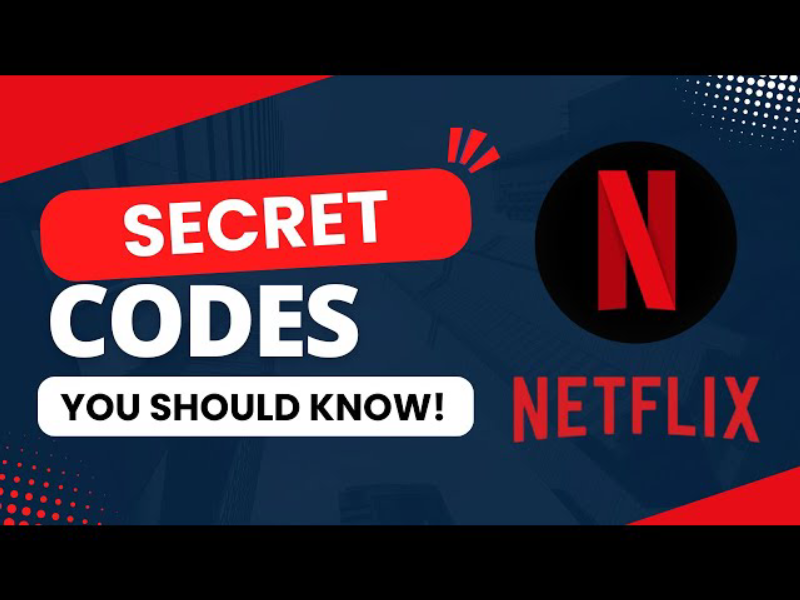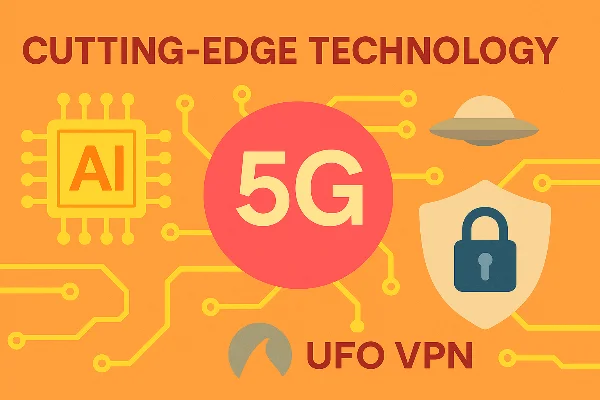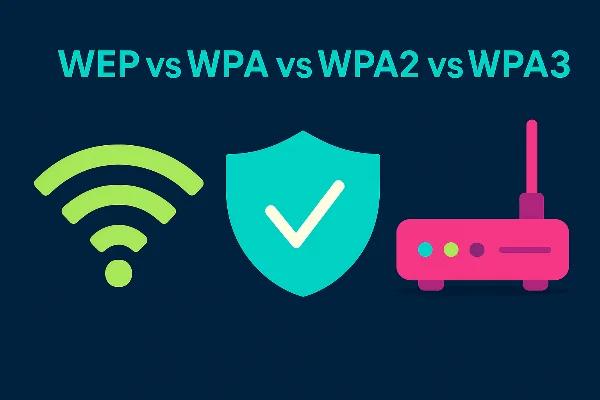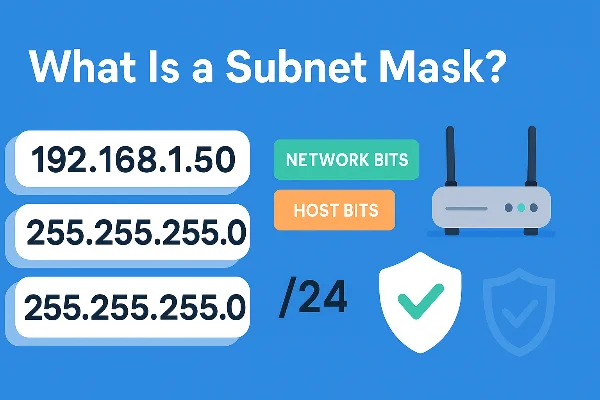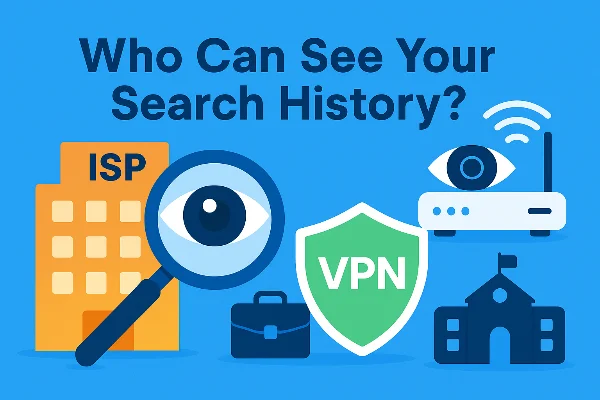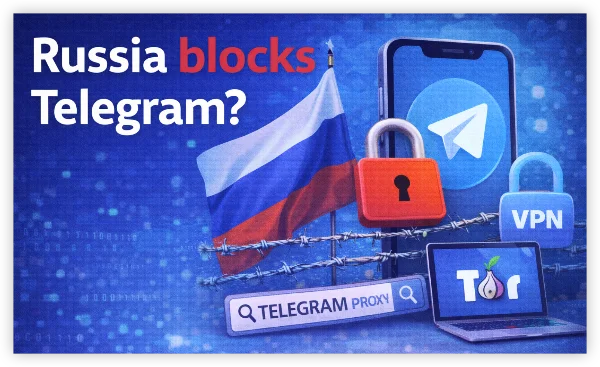Definition of Proxy and VPN
Before diving into comparisons, let's establish what we're actually talking about. Both proxies and VPNs act as intermediaries between your device and the internet, but they operate in fundamentally different ways.
A proxy server is a gateway that sits between you and the websites you visit. It receives your requests, forwards them to the destination server, and sends the response back to you. Think of it as a middleman who handles your internet traffic.
A VPN (Virtual Private Network) creates an encrypted tunnel between your device and a VPN server. All your internet traffic passes through this secure tunnel, making it appear as if you're browsing from the VPN server's location while keeping your data protected.
The key distinction? A proxy simply reroutes your traffic, while a VPN like UFO VPN encrypts and secures it.
While proxies only reroute your traffic without encryption, a strong VPN creates a secure, encrypted tunnel to protect your data and privacy — plus it helps you unblock geo-restricted apps/websites like Pornhub and Netflix with just one tap. Download UFO VPN iOS - free VPN for iPhone/iPad
What Is a Proxy Server and How Does It Work?
A proxy server acts as an intermediary between your device and the internet. When you make a request (like visiting a website), instead of connecting directly, your request goes to the proxy server first. The proxy then forwards your request to the destination server, receives the response, and sends it back to you.
Here's the process step-by-step:
- You request to visit a website
- Your request goes to the proxy server
- The proxy forwards your request to the website
- The website sends its response to the proxy
- The proxy delivers the response to you
Types of Proxy Servers:
HTTP Proxies are designed specifically for web browsing. They handle HTTP and HTTPS requests, making them ideal for accessing websites and web applications. However, they only work with web traffic.
SOCKS Proxies are more versatile and can handle various types of internet traffic, including email, file transfers, and peer-to-peer connections. SOCKS5 is the most advanced version, offering better performance and security features.
Transparent Proxies operate without requiring any configuration on your device. They're often used by organizations to monitor or filter internet usage, but they don't provide anonymity since they don't hide your IP address.
Anonymous Proxies hide your IP address from the websites you visit, but may still identify themselves as proxies to the destination server.
Elite Proxies (also called high-anonymity proxies) provide the highest level of anonymity by completely hiding your IP address and not revealing that you're using a proxy.
What Is a VPN and How Does It Work?
A VPN creates a secure, encrypted connection between your device and a VPN server. This connection forms a "tunnel" through which all your internet traffic passes. To the outside world, it appears as if you're browsing from the VPN server's location, effectively masking your real IP address and location.
The VPN process works like this:
- You connect to a VPN server
- Your device creates an encrypted tunnel to the server
- All your internet traffic is encrypted and sent through this tunnel
- The VPN server decrypts your traffic and forwards it to the destination
- Responses travel back through the same encrypted tunnel
Types of VPN Protocols:
OpenVPN is an open-source protocol known for its strong security and flexibility. It works well across different platforms and can bypass most firewalls.
WireGuard is a newer protocol that offers excellent performance and security with simpler code. It's faster than OpenVPN and uses modern cryptography.
IKEv2/IPSec provides strong security and is particularly good for mobile devices due to its ability to quickly reconnect when switching between networks.
L2TP/IPSec combines Layer 2 Tunneling Protocol with IPSec encryption. While secure, it can be slower than other protocols.
PPTP is an older protocol that's fast but less secure. It's generally not recommended for privacy-conscious users.
The Key Differences Between Proxies and VPNs
Understanding the core differences between proxies and VPNs is crucial for making an informed decision. Let's examine the key distinctions:
Security and Encryption: VPNs encrypt all your internet traffic, making it unreadable to anyone who might intercept it. Proxies, on the other hand, typically don't encrypt your data, leaving it vulnerable to interception.
Traffic Coverage: VPNs protect all internet traffic from your device, including web browsing, email, gaming, and app usage. Proxies usually only handle specific types of traffic or applications.
Performance: Proxies generally offer faster speeds since they don't encrypt data. VPNs may slightly reduce speed due to encryption overhead, but modern VPNs minimize this impact.
Privacy Protection: VPNs provide comprehensive privacy protection by hiding your IP address and encrypting your traffic. Proxies hide your IP but don't protect your data from being monitored.
Device Compatibility: VPNs work system-wide and protect all applications on your device. Proxies typically require configuration for each application or only work with specific software.
Cost: Basic proxies are often cheaper or free, while quality VPNs usually require a subscription. However, the enhanced security and features of VPNs often justify the additional cost.
VPN vs Proxy: Which One Is Better for You?
The choice between a proxy and a VPN depends on your specific needs and priorities. Here's how to decide:
Choose a VPN if you:
- Want comprehensive privacy and security protection
- Need to protect sensitive data like banking information
- Use public Wi-Fi networks frequently
- Want to secure all your device's internet traffic
- Are concerned about government surveillance or ISP monitoring
- Need reliable access to geo-blocked content
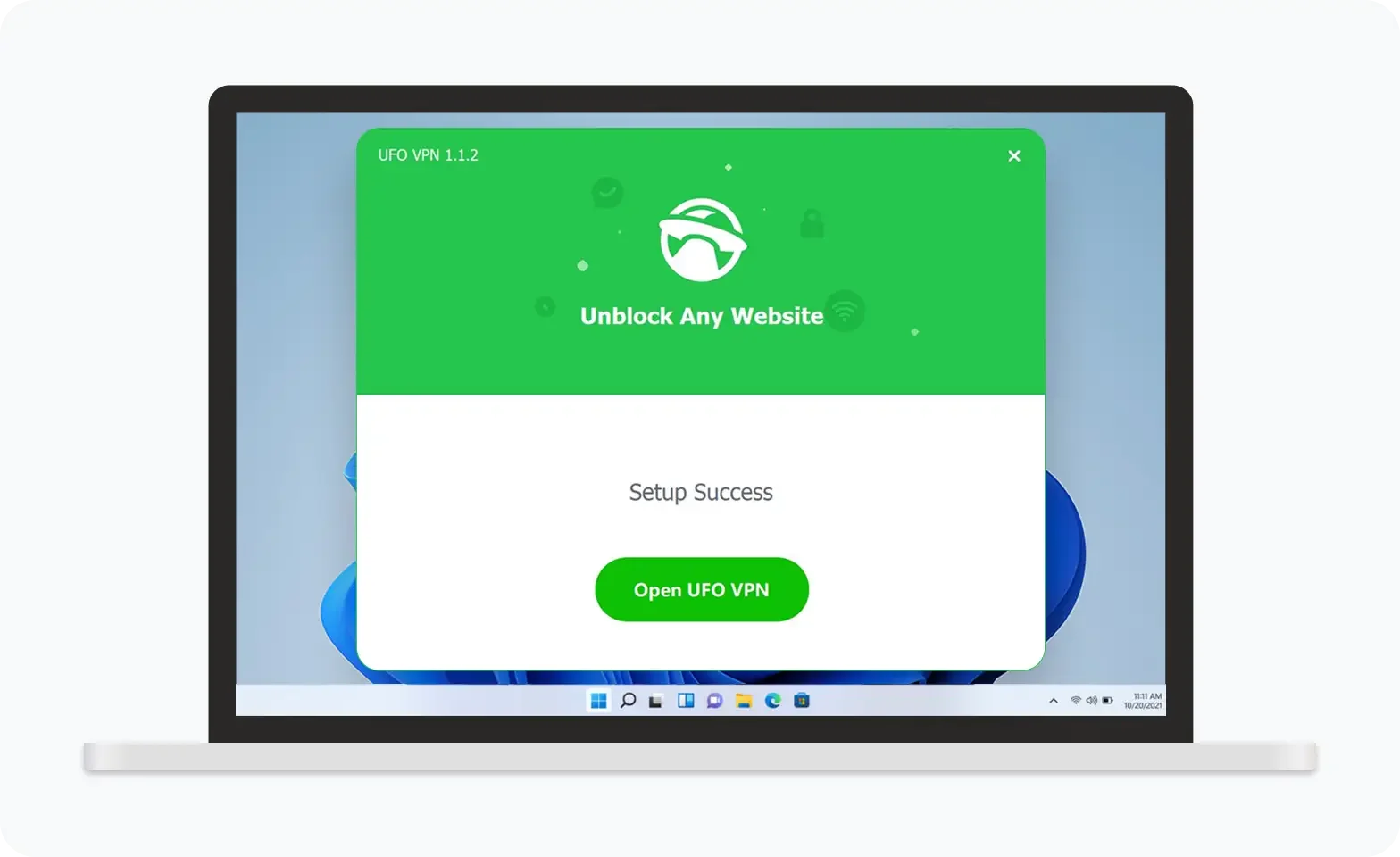
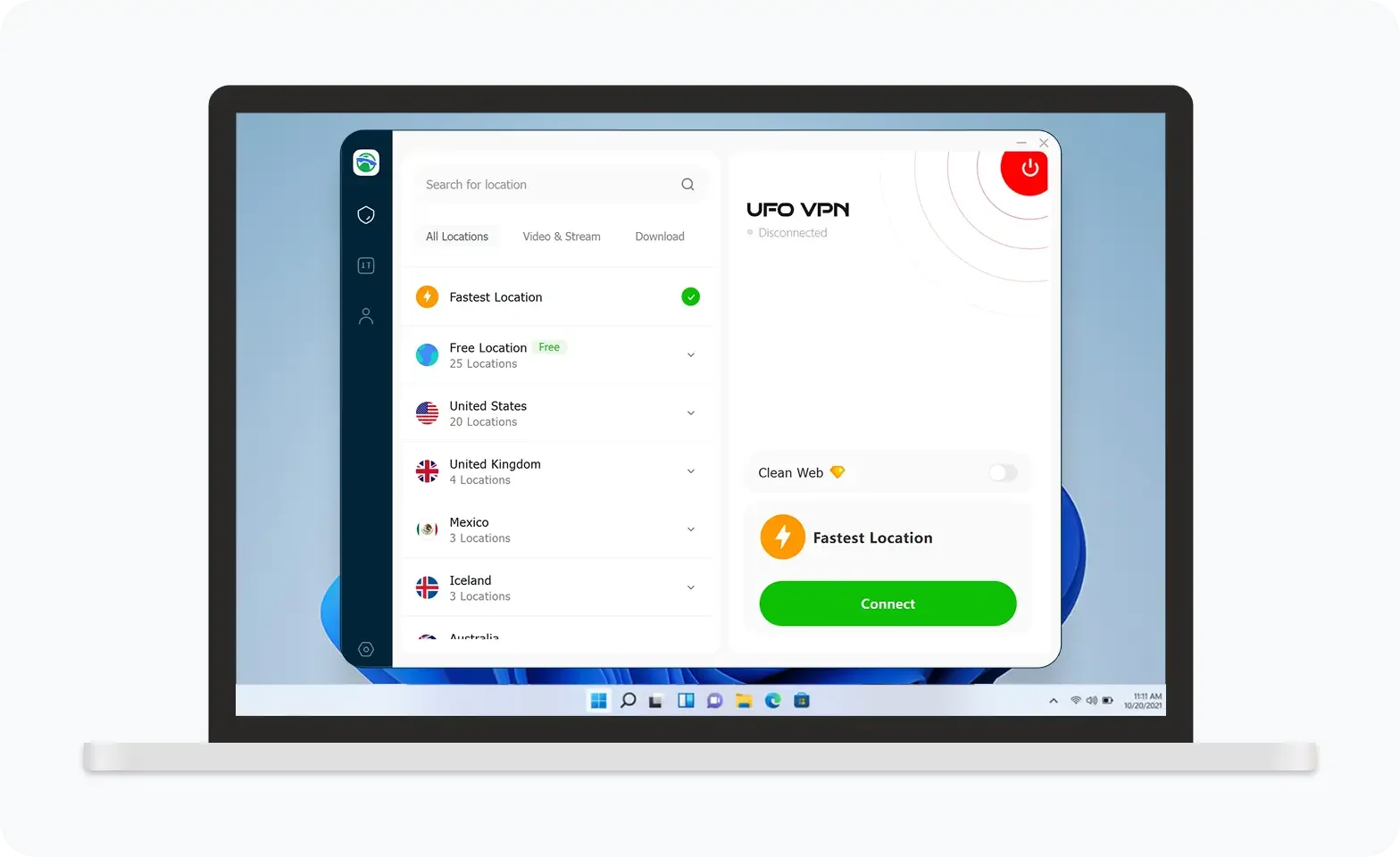
UFO VPN is an all-in-one VPN that offers unlimited access to 4D streaming like Netlfix, Disney Plus, no-ping gaming as PUBG, Roblox, CODM and social networking for YouTube, X, Facebook and more.
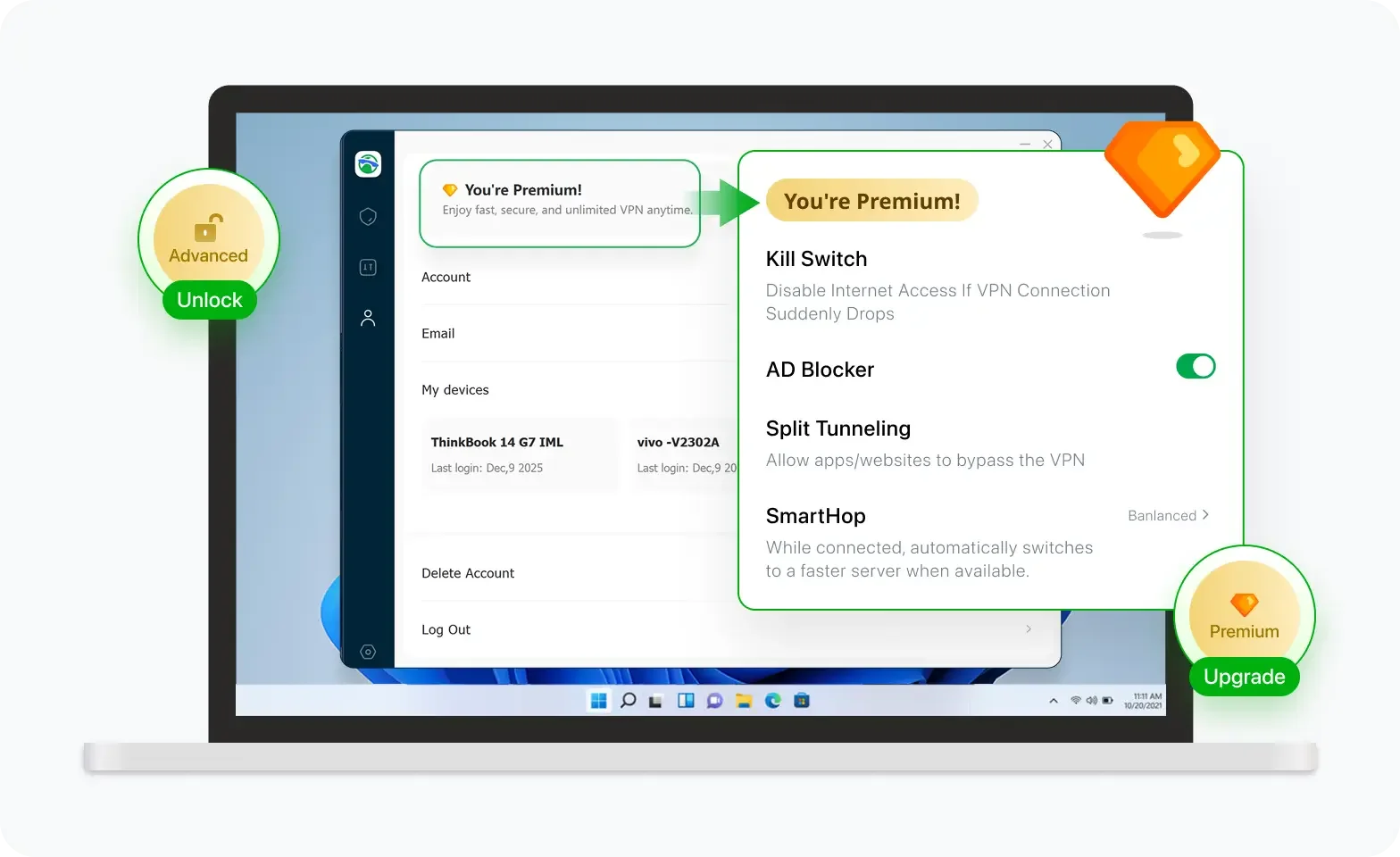
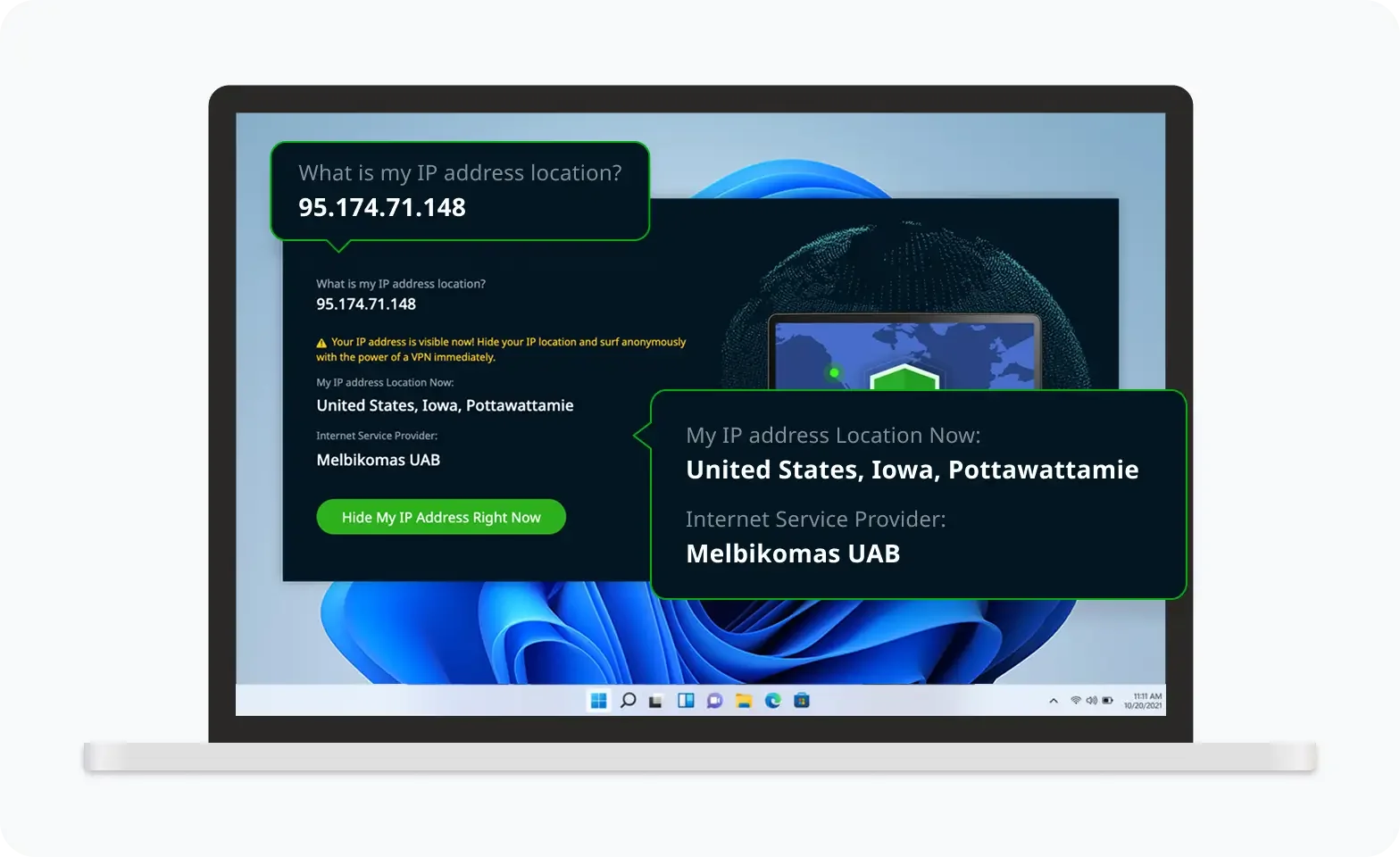
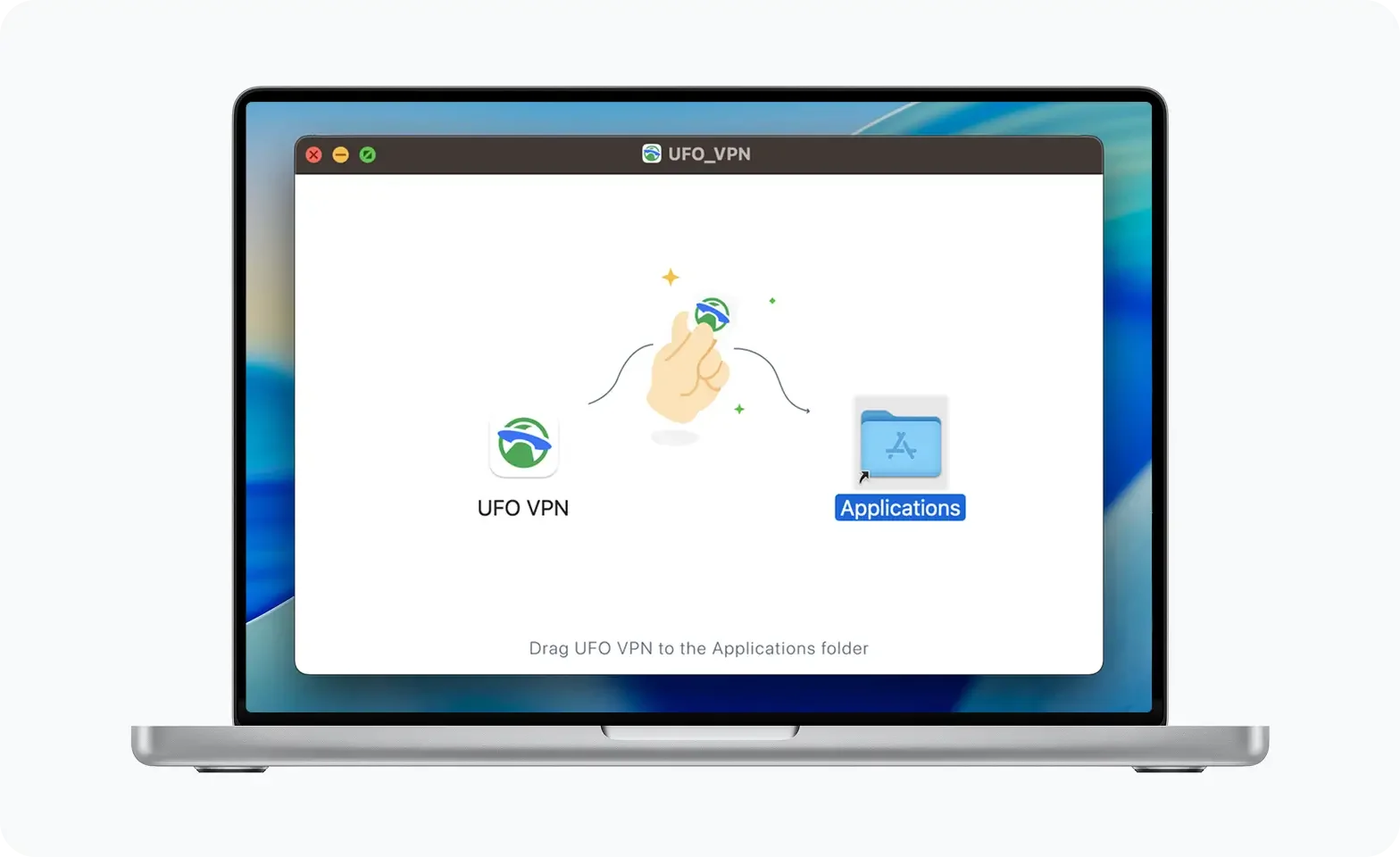
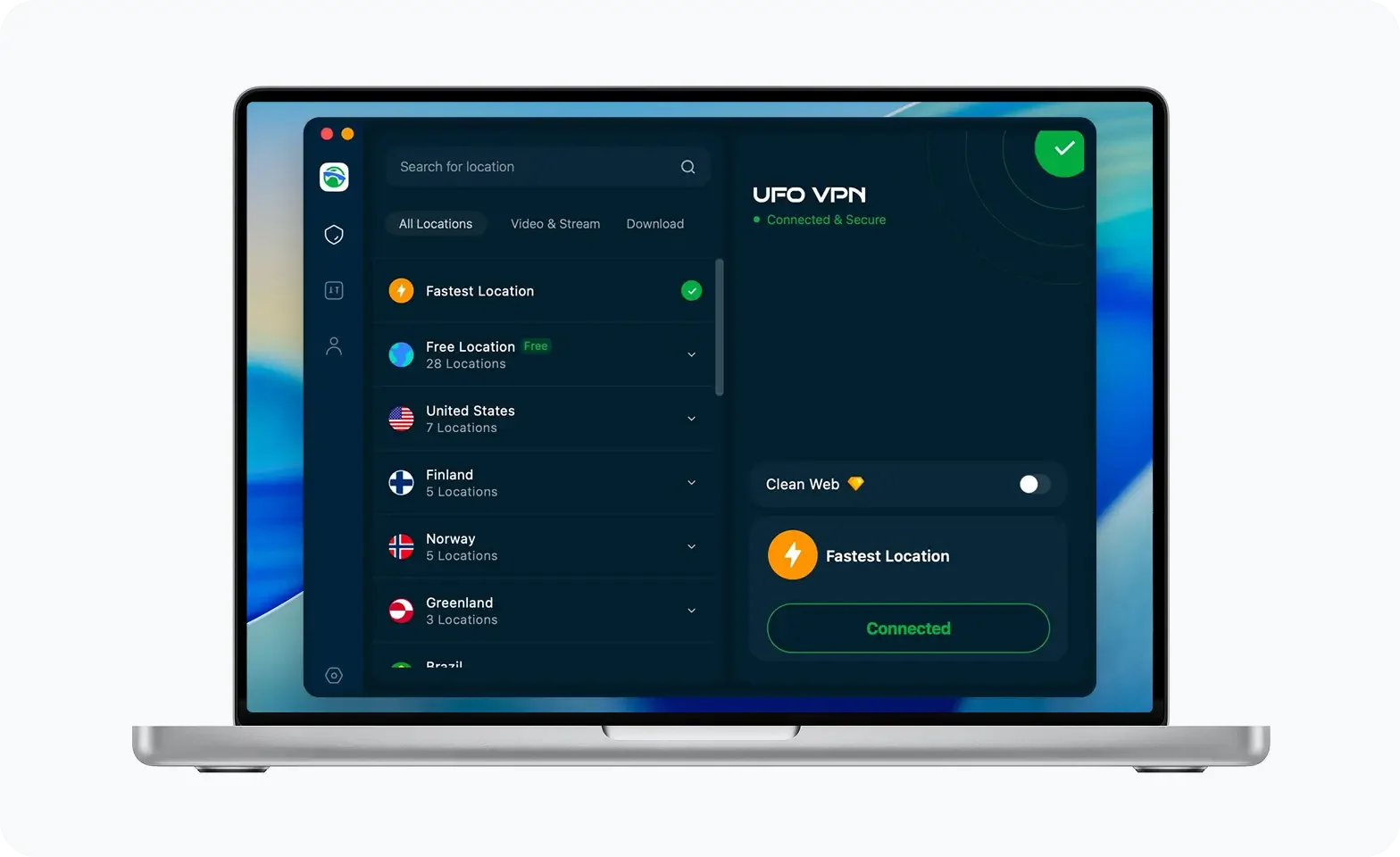
Unlock Pro Features
If you have upgraded to premium plan , feel free to enjoy premium servers for 4K streaming and advanced features like Kill Switch, Split Tunneling, and gaming acceleration. Your Mac is now fully optimized and protected. Inaddition to basic functions, we recommend you turn on

Verify Your IP Now
Use UFO VPN's " What is My IP " feature to see your new IP and location. This confirms your connection is secure, anonymous, and ready for safe browsing online anywhere at any time.

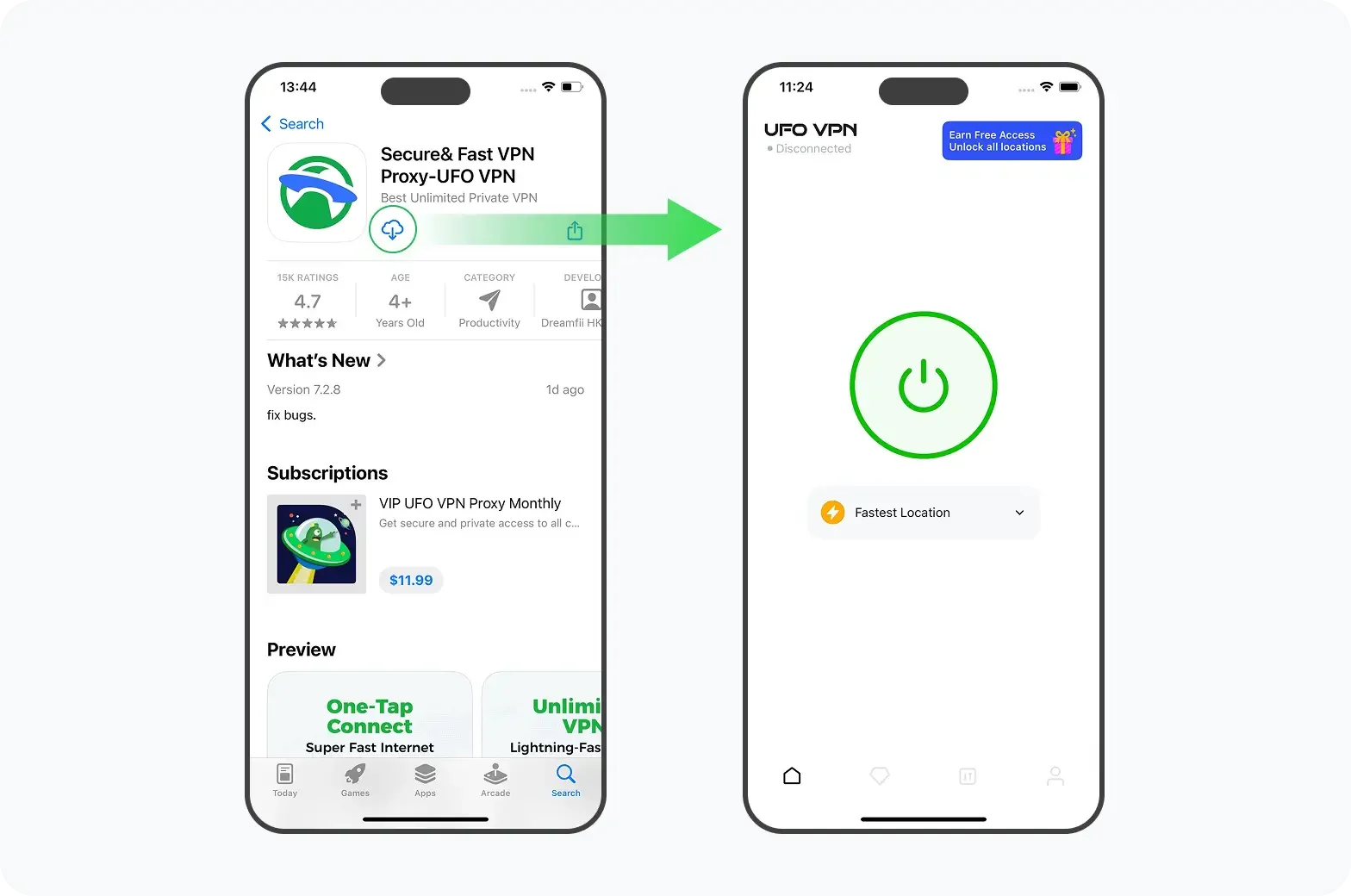
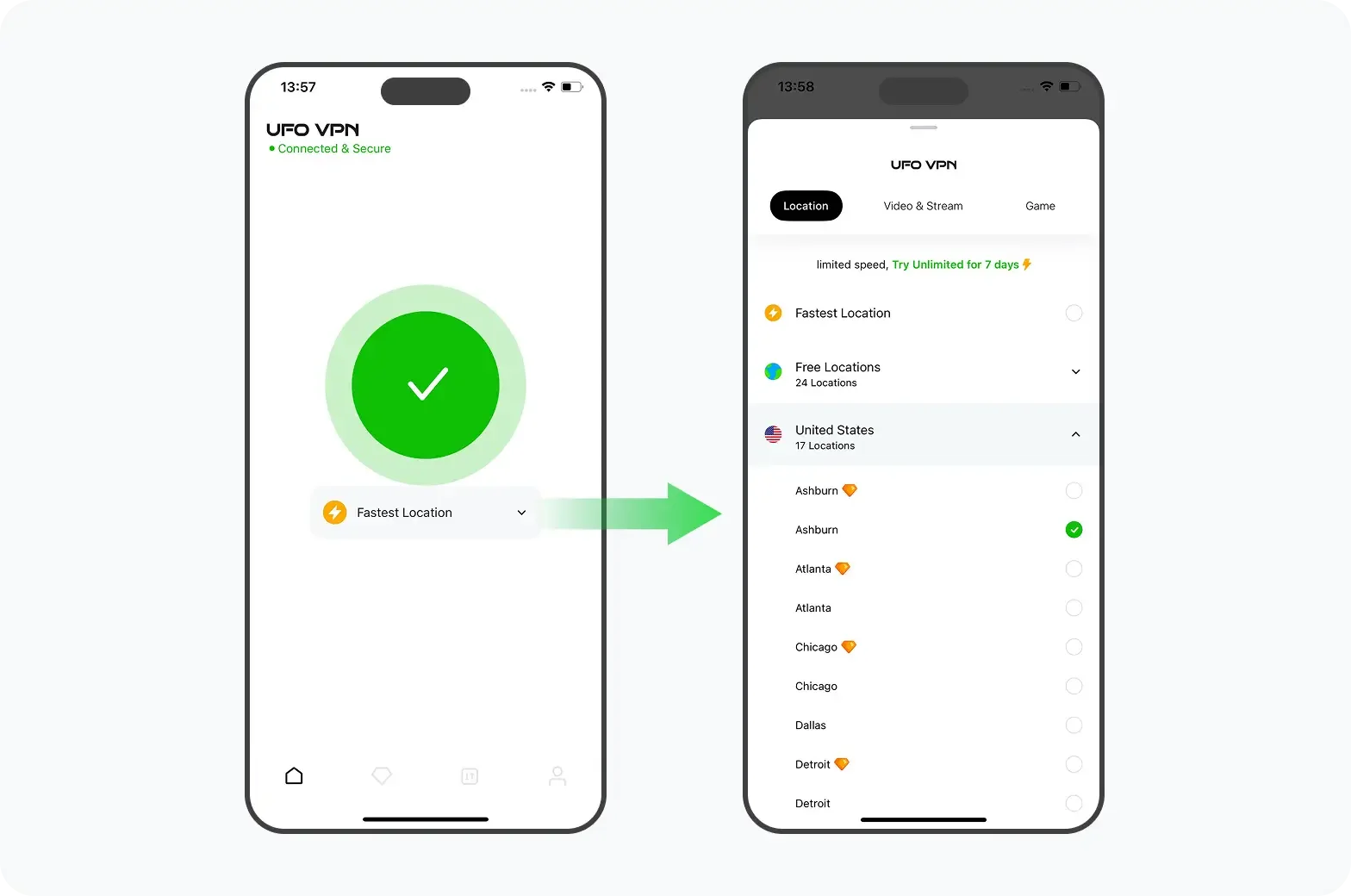
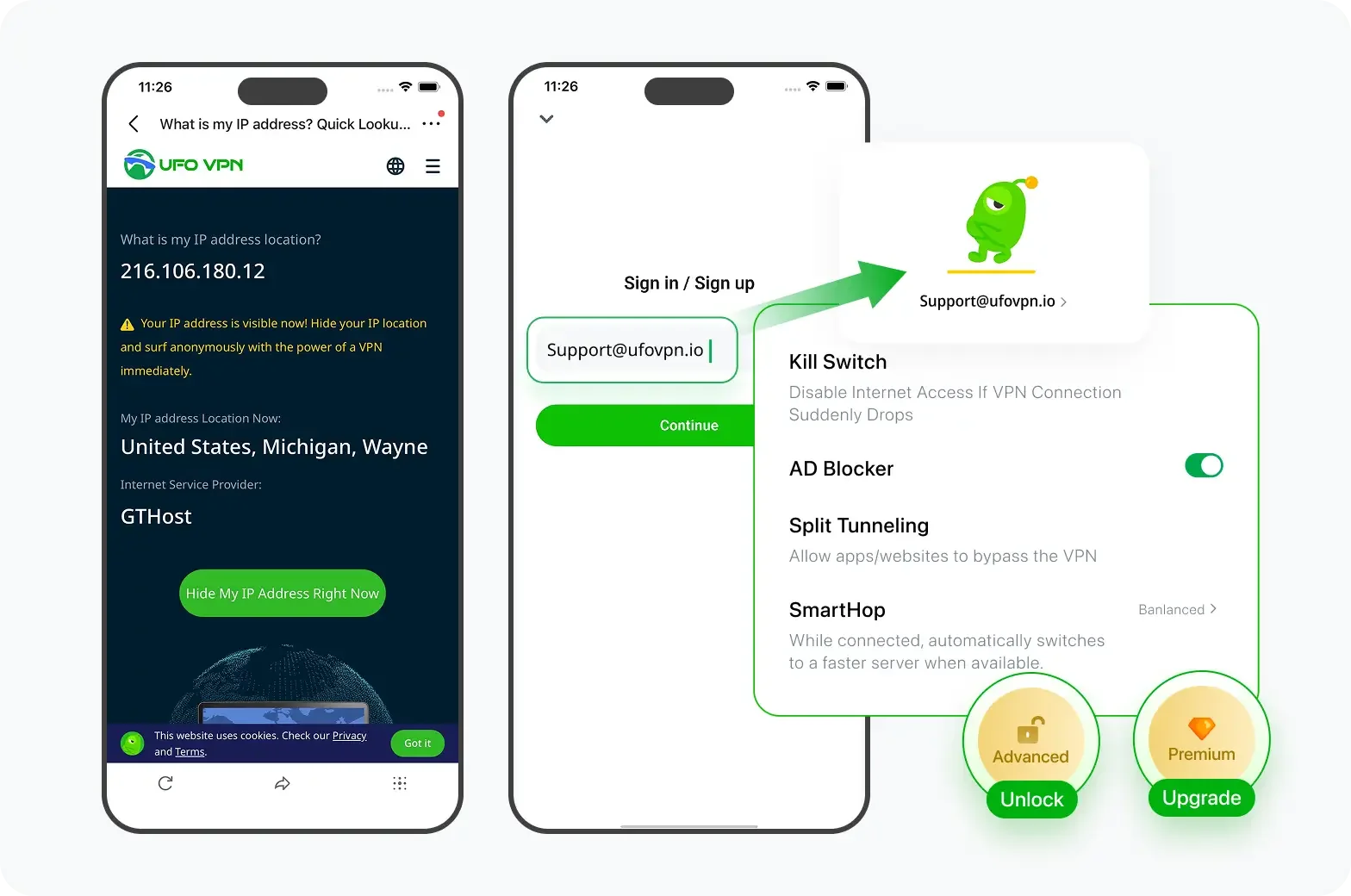
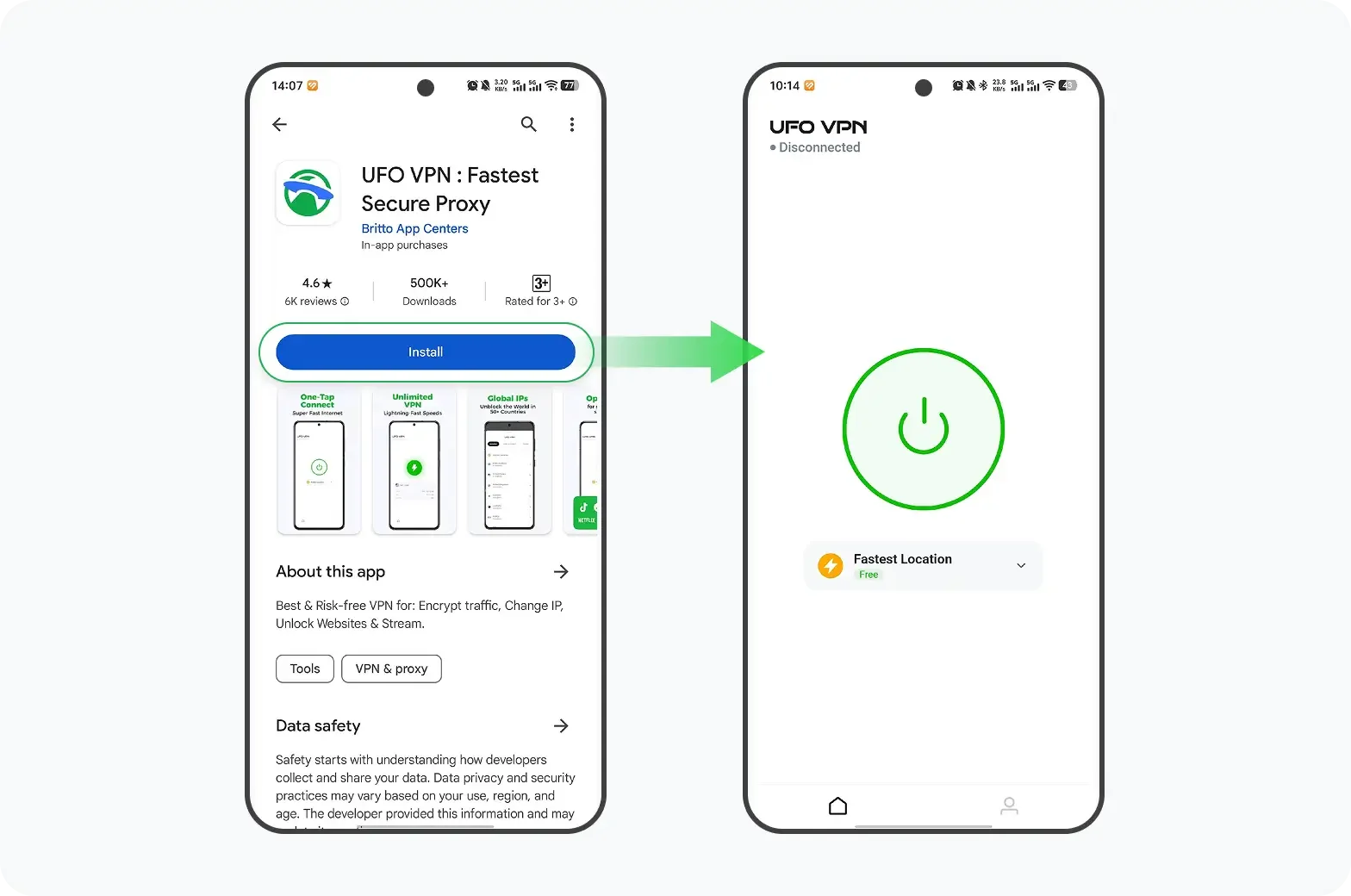
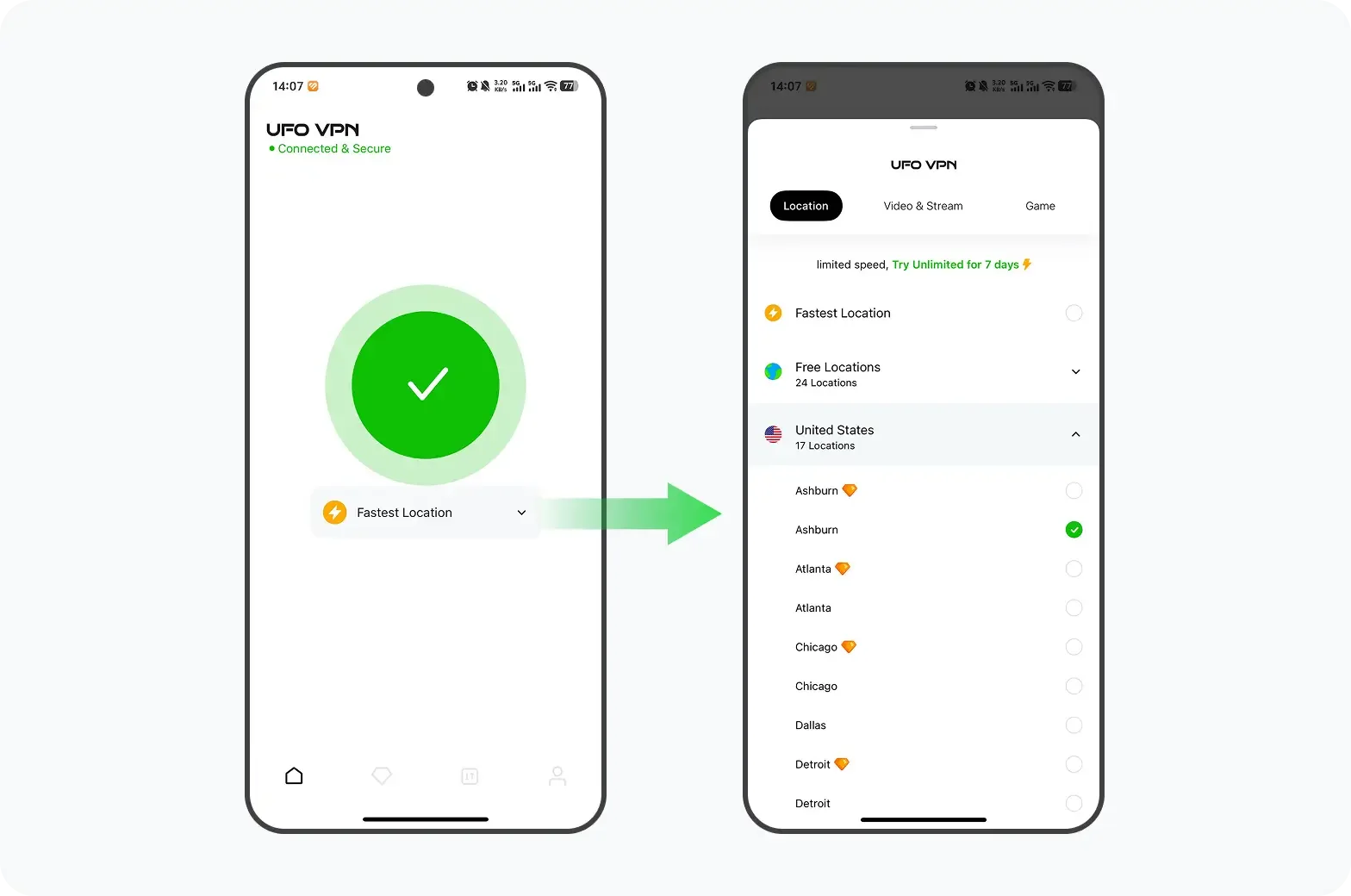
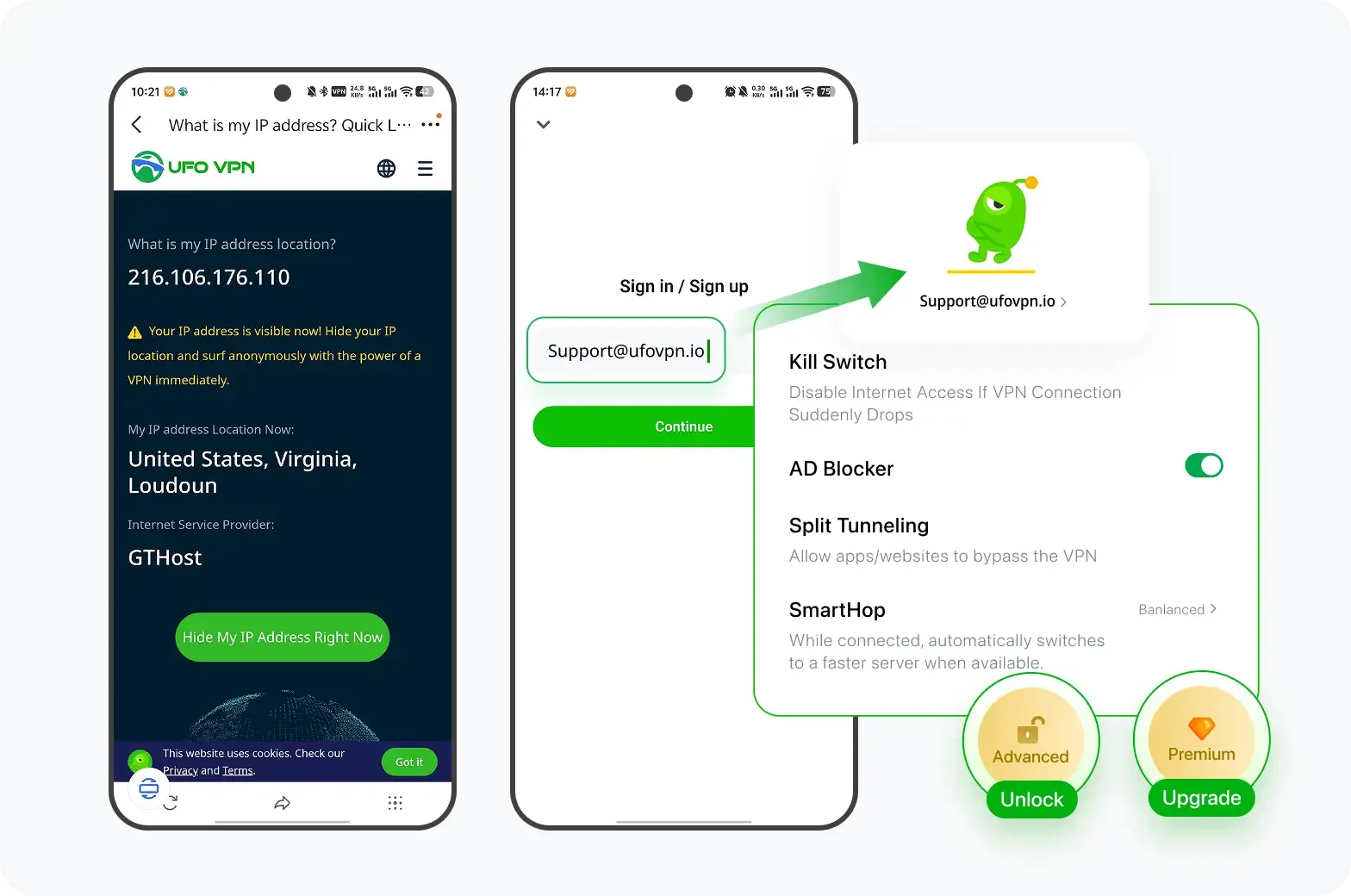
Choose a Proxy if you:
- Only need to bypass basic geo-restrictions
- Want faster speeds for specific activities
- Have a limited budget
- Only need to mask your IP for web browsing
- Are performing tasks that don't involve sensitive data
For most users, a VPN is the better choice due to its comprehensive security features. The slight speed reduction is usually worth the significant privacy benefits.
Should You Use Proxy and VPN Together?
Using a proxy and VPN together is possible, but it is rarely necessary for average users. This setup, sometimes called "proxy chaining," can provide additional anonymity but comes with several drawbacks:
Potential Benefits:
- Extra layer of IP address masking
- Additional anonymity for high-security needs
- Ability to bypass restrictions on both services
Significant Drawbacks:
- Dramatically reduced internet speeds
- Increased complexity and potential for errors
- Higher costs if using premium services
- Potential for connection instability
- Diminishing returns on privacy benefits
For most users, a high-quality VPN alone provides sufficient privacy and security. The complexity and performance costs of combining both services typically outweigh the benefits.
Are Free Proxies and Free VPNs Safe to Use?
Free proxies and VPNs can be tempting, but they come with significant risks that users should carefully consider.
Free Proxy Risks:
- No encryption means your data is vulnerable
- Often unreliable with frequent disconnections
- May log and sell your browsing data
- Limited server options and poor performance
- Potential malware injection
Free VPN Risks:
- May log and sell your personal data
- Often have severe speed and data limitations
- Limited server locations
- Weak encryption or security protocols
- Potential for malware or adware
Why Free Services Are Risky: These services need to generate revenue somehow. If you're not paying for the service, you're likely the product being sold. Your data, browsing habits, and personal information may be harvested and sold to third parties.
Better Alternatives: Instead of free services, consider:
- Reputable VPN providers with money-back guarantees
- Premium services with free trial periods
- Paid services with strong privacy policies and transparent practices
Bottom Line
While proxies can serve specific purposes, VPNs provide the comprehensive protection that modern internet users need. The slight performance trade-off is insignificant compared to the security benefits. If you're serious about online privacy and security, investing in a reputable VPN service like UFO VPN is the smart choice. Look for providers with strong encryption, no-logs policies, and reliable customer support.


